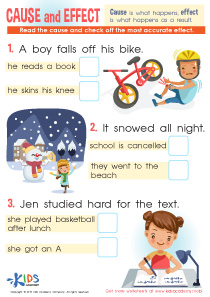Critical Thinking Normal Reading Non-Fiction Worksheets for Ages 7-9
6 filtered results
-
From - To
Unlock your child's potential with our "Critical Thinking Normal Reading Non-Fiction Worksheets for Ages 7-9." These engaging worksheets are designed to enhance critical thinking skills while nurturing an interest in non-fiction reading. Carefully curated for young learners, our resources encourage students to analyze, interpret, and evaluate information, promoting deeper comprehension of real-world topics. With diverse content covering science, history, and nature, your child will develop essential skills that will serve them throughout their education. Perfect for home or classroom use, these worksheets are a fun way to connect reading with thoughtful inquiry and encourage lifelong learning. Get started today!
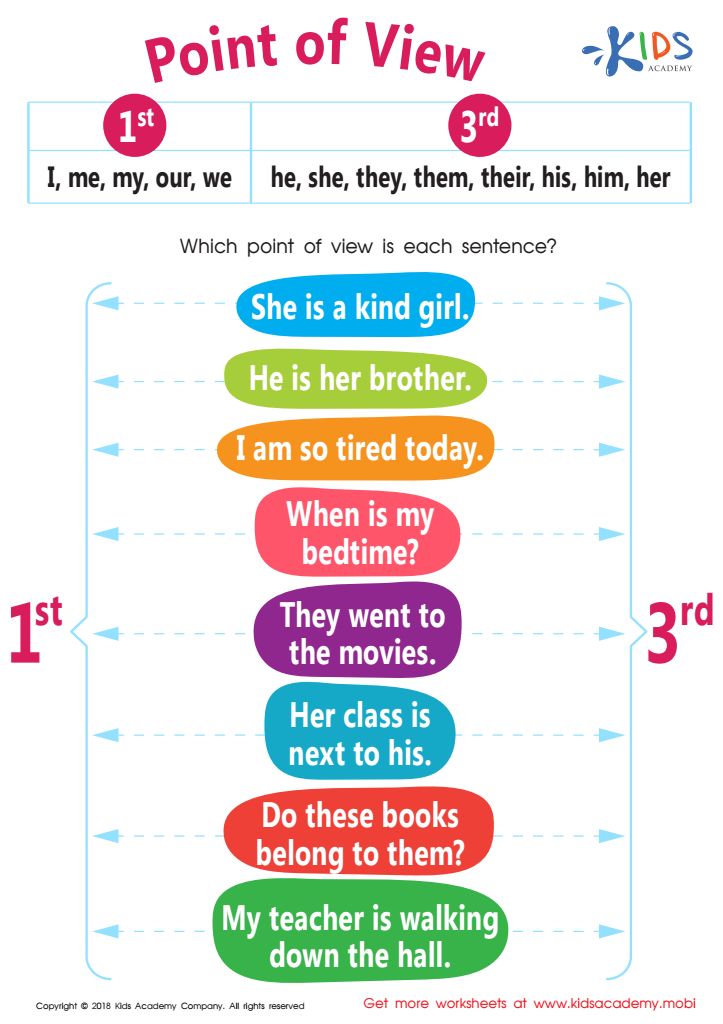

Point of View Worksheet
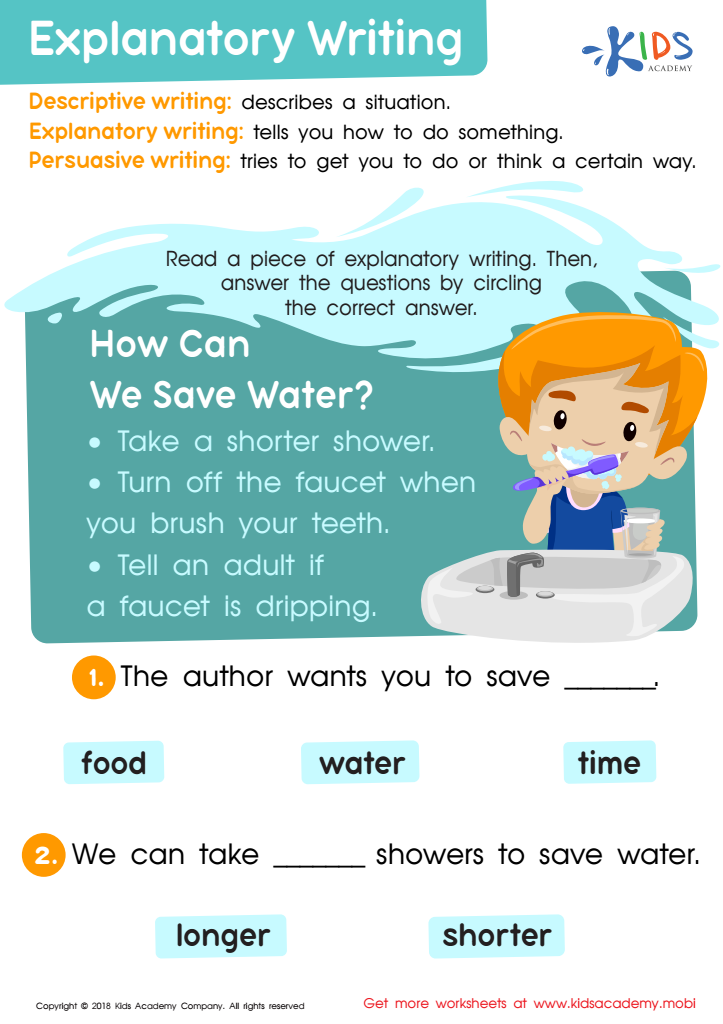

Explanatory Writing Worksheet
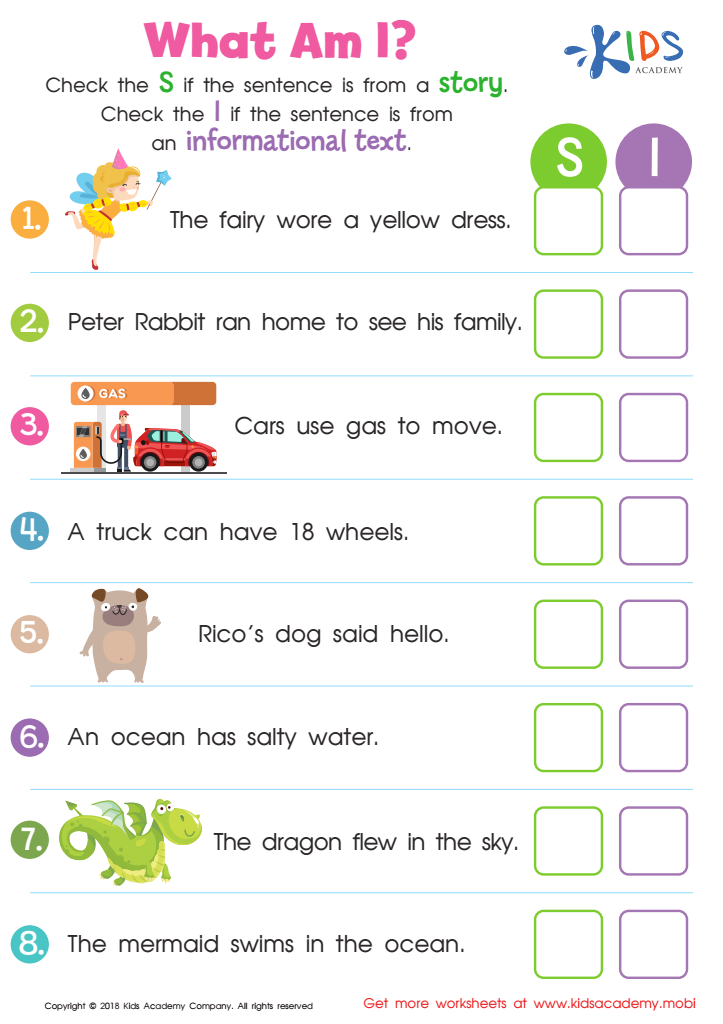

What Am I? Worksheet
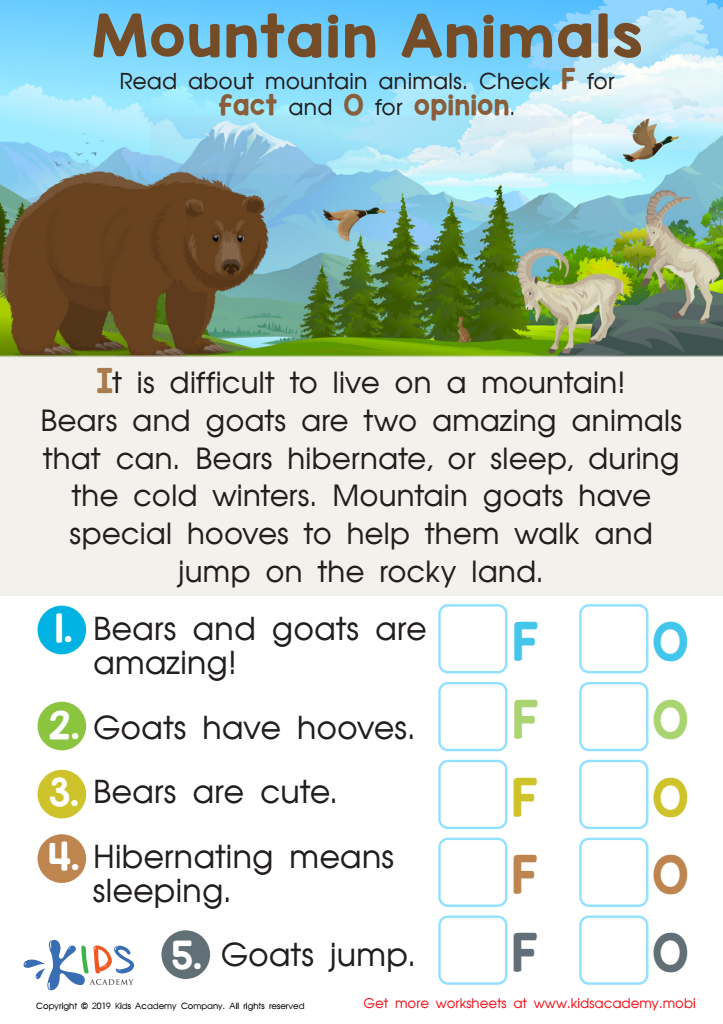

Mountain Animals Worksheet
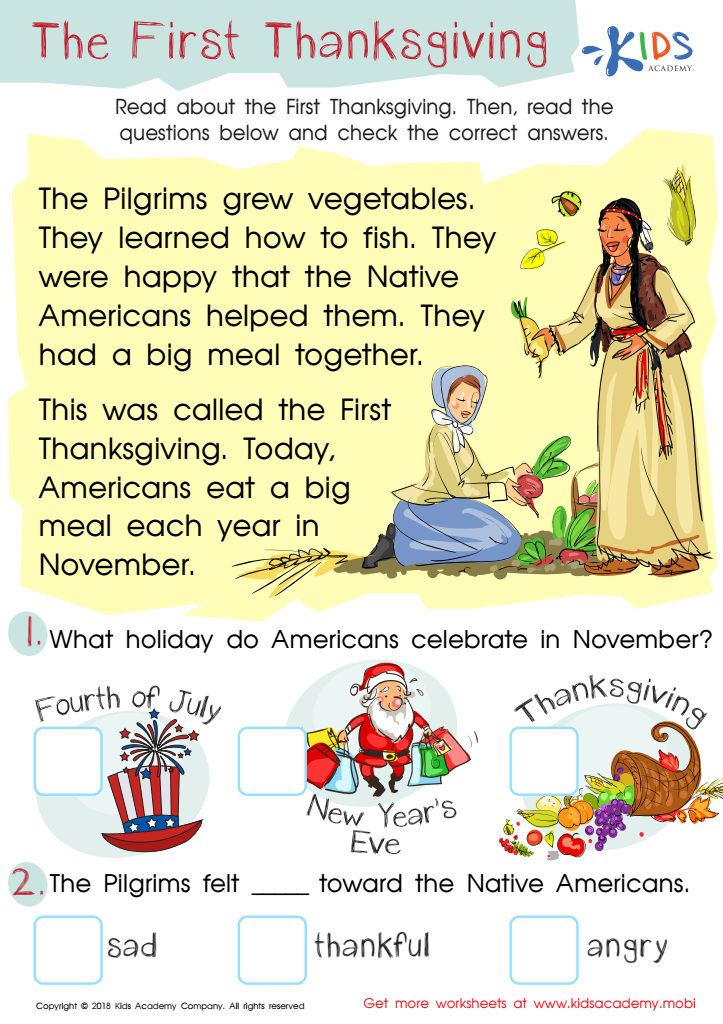

Assessment: First Thanksgiving Worksheet
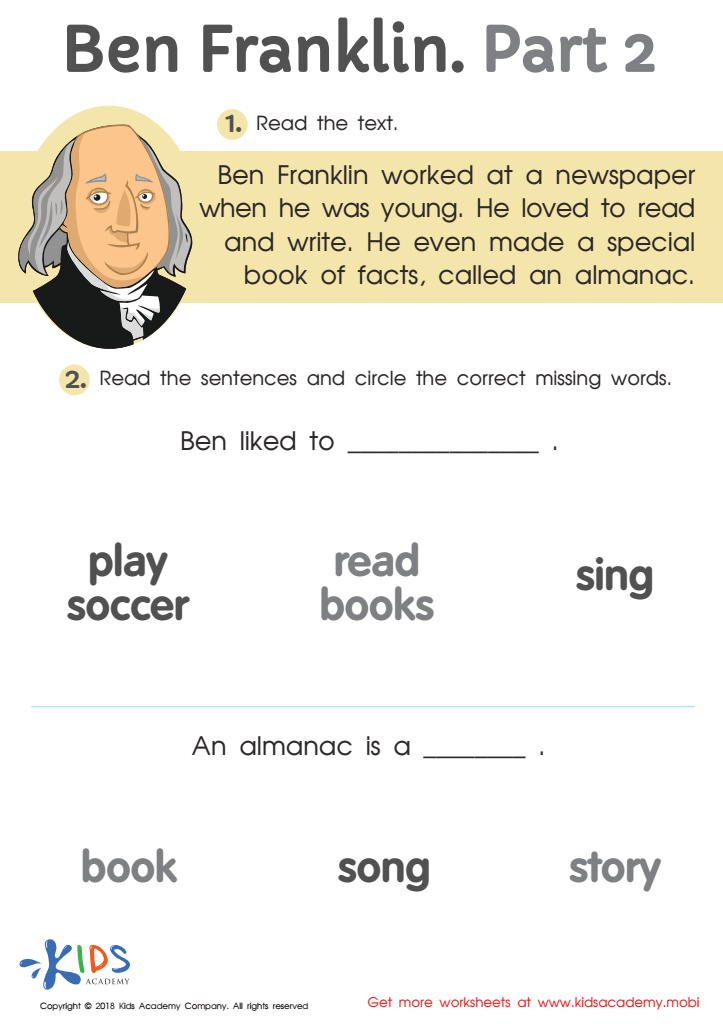

Ben Franklin Part 2 Worksheet
Critical thinking and non-fiction reading for children aged 7-9 are essential components of their educational development. At this age, children are starting to form their own opinions and understand complex concepts. Engaging with non-fiction not only broadens their knowledge of the world but also enhances their ability to think critically. This skill allows them to analyze information, discern fact from opinion, and make informed decisions.
Parents and teachers should prioritize critical thinking within non-fiction reading as it fosters curiosity and a love for learning. Non-fiction books often present real-world issues and factual content that can spark discussions, encouraging children to ask questions, seek answers, and explore varying viewpoints. This process hones their ability to evaluate credibility and understand evidence—a crucial part of becoming informed citizens.
Moreover, in a rapidly changing and information-rich society, the ability to critically assess information is vital. Children equipped with strong critical thinking skills are more likely to tackle challenges and solve problems creatively. By caring about and promoting critical thinking through non-fiction readings, parents and teachers not only prepare children for academic success but also nurture them into considerate, capable individuals ready to navigate complexities in life.
 Assign to My Students
Assign to My Students








